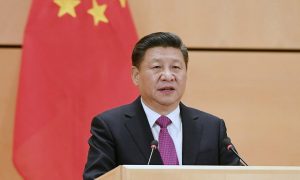How China tightened its grip on the media during 2016, by IFJ

The Guardian, 20 January 2017

By Roy Greenslade — Media across mainland China was muted throughout 2016, says a report on the International Federation of Journalists’ website, “Strangling the media: China tightens its grip”.
“All media”, it claims, “is covered by a bright red colour after Xi Jinping, honourable secretary of the communist party, demanded that state media should use ‘party’ as their surname.”
It says that dissenting opinions were quashed by the authorities. As a consequence, all media became the mouthpiece of the government and the party.
Although a press conference was staged after the sixth plenary of the party in October last year, only a few journalists were able to ask questions. And it was then discovered that they had had to submit them in advance.
This practice, says the IFJ, “shows that the authorities do not know the true meaning of press freedom.” It points out that the Foreign Correspondents’ Club of China also criticised the pre-screening arrangement.
Working conditions for foreign correspondents did improve slightly in terms of obtaining working visas and press accreditation cards, although some exceptional cases still existed.
Access to restricted regions such as Tibet, Xinjiang and Inner Mongolia remained difficult. During a couple of media tours to the regions journalists’ freedom of movement was very restricted.
Overall, harassment, surveillance and threats continued to occur. A typical incident happened in November when a BBC journalist tried to interview an independent candidate who ran for local council election.
The reporter and his TV crew were blocked and manhandled by more than 20 masked men.
In Hong Kong, following the secret detention of the Causeway Bay Bookstore’s owner and employees and their forced confessions, some media outlets collaborated with the authorities to obtain exclusive interviews.
Similarly, when the prominent human rights lawyer Wang Yu was arrested, the complicit media outlets did not report that interviews with her were orchestrated.
The IFJ also argues that press freedom was compromised in the coverage of the sensitive issue of Hong Kong independence because journalists working for pro-government media outlets acted unprofessionally and unethically.
They provoked independence candidates in order to make it appear as if they had behaved badly. Also, two major pro-government newspapers regularly published malicious articles about the candidates.
The IFJ article concludes by urging journalists working in mainland China and Hong Kong to “stay alert and uphold professional journalism… and to decline any attempts at orchestrating ‘exclusive’ reports and taking part in pre-screening press conferences.”
Source: IFJ

